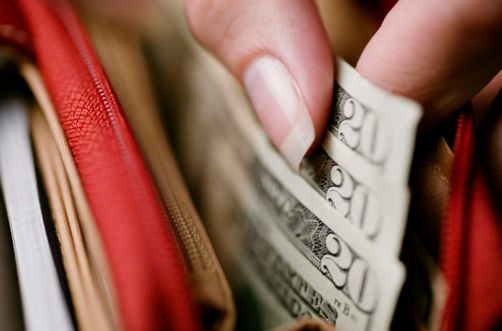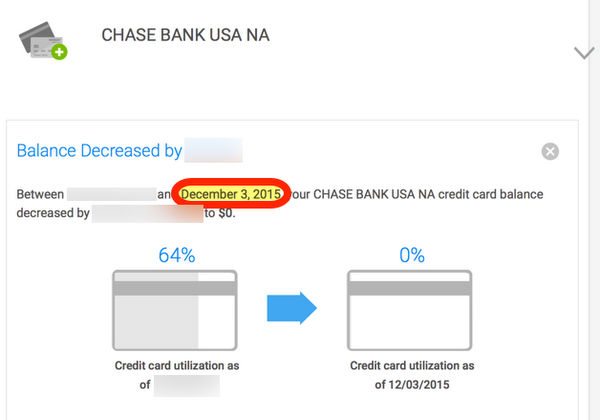Quick Tip: How to Easily Improve Your Credit Score With an Early Payment
Signing up for credit cards through partner links earns us a commission. Terms apply to the offers listed on this page. Here’s our full advertising policy: How we make money.
Here’s an interesting tip that might help get you approved when you apply for new cards!
Folks on the myFICO forums report Chase updates the account balances on your credit reports ~5 days after you pay off a balance.
And this appears to be the case whether you make a payment on your due date or in the middle of your billing cycle.
This is very helpful. Because the amount you owe on your credit cards as reported to the credit bureaus is a significant factor of your credit score!
I’ll explain how this can be helpful if you’re applying for new cards!
What’s the Deal?
Link: myFICO Chase Reporting Thread
Link: Credit Karma
Unlike most banks, folks report Chase updates your card account balances to the 3 major credit bureaus within a few days of a change.
Other banks generally report after your statement closes. So if you pay off a balance, it may not reflect on your credit reports for up to ~1 month!

I wanted to see for myself if this is true. I made some big purchases in November on 1 of my Chase cards. And paid it off in full on December 3, 2015 (well before my statement closed).

Within a few days, the payment appeared on my TransUnion and Equifax reports! I checked them through CreditKarma. It’s free to sign-up.

So why is this useful if you’re applying for new cards?
It’s About Utilization!
I’ve written about how applying for credit cards affects your credit score.
When deciding whether to approve you for new credit, banks look at your credit reports and credit score. You’re more likely to be approved if you have a higher score and are NOT carrying a lot of balances on your existing cards.
In fact, 30% of your credit score is based on balances owed, or your utilization.

Folks with high utilization (when your balance is close to your credit limit) can be seen as riskier borrowers. If you’re close to maxing out a card, banks might see that as an indication that you’re having trouble paying it off.
You’re more likely to be approved for new credit if your credit report shows low or zero balances on your other accounts.
So if you’ll soon be applying for new cards, it’s worth making paying off your Chase accounts a priority. That’s because a new zero balance on a Chase card will show up on your credit report very quickly!
That said, banks look at many factors when deciding whether to extend you new credit. But reducing your utilization by paying off your cards could increase your chances of being approved.
Bottom Line
Folks on the myFICO forum say Chase will report a zero balance to credit bureaus shortly after you pay off an account.
Most banks don’t report until after your statement closes. But with Chase it only takes a few days (I checked my accounts and found the same thing).
This could be useful if you’ll soon be applying for new cards. That’s because banks like to see low utilization (balances) on your current accounts when they’re deciding whether to extend you more credit.
So it might be a good idea to make paying your Chase cards a priority a few days before you apply for new credit. At the very least, it can’t hurt!
Have you noticed this too? Please share your experiences in the comments!
Editorial Note: We're the Million Mile Secrets team. And we're proud of our content, opinions and analysis, and of our reader's comments. These haven’t been reviewed, approved or endorsed by any of the airlines, hotels, or credit card issuers which we often write about. And that’s just how we like it! :)






Join the Discussion!